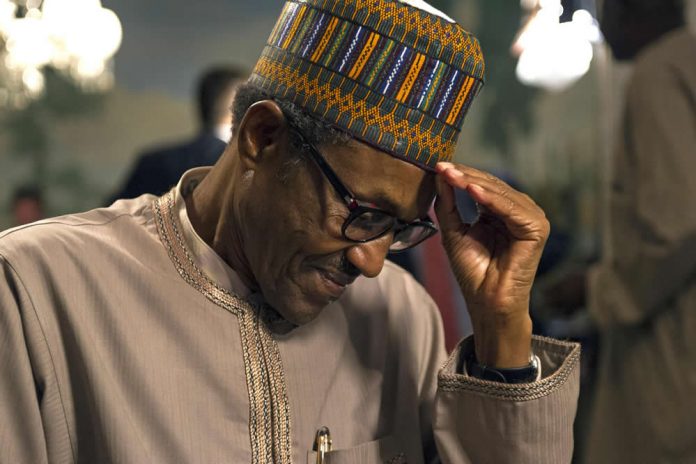Highlights of 2017 Budget
1 No salary increment for workers in 2017
2 Retains N500bn social intervention programmes in 2017
3 Launches economic recovery and growth plan before end of December
4 Capital Expenditure = N2.078 trillion
5 Recurrent Expenditure = N2.9 trillion
6 Exchange Rate = N305 to US$1
7 Oil Benchmark = $42.5 per barrel
8 Oil Production Level = 2.2 million per day
The Nigerian Government has proposed a budget of N7,281,361,611,853 for the year 2017.
The proposed budget represents an increase of 19.95 per cent over the 2016 Appropriation of N6.07 trillion.
A highly placed Presidency official confirmed the budget details in Abuja, adding that the government pegged the exchange rate at N305 per USD.
The source disclosed that the 2017 Budget was based on a crude oil benchmark price of $42.5 per barrel and a production estimate of 2.2 million barrels per day.
In the 2016 Budget, the crude oil benchmark price was $38 per barrel while production level was 2.2 million barrels per day. The production level however dropped to 1.9 million barrels per day due to the activities of Niger Delta militants.
“The 2017 Budget is ready and has been considered by the Federal Executive Council (FEC). A total spending of N7,281,361,611,853 is proposed for 2017.
“Next year’s budget was also predicated on an exchange rate of N305 to a dollar. The figure was the prevailing exchange rate as at the time the 2016 – 19 Medium Term Expenditure Framework (MTEF) was prepared in August 2016,” the official said.
The source added, “The President has communicated his readiness and willingness to present and submit the 2017 Budget to the leadership of the National Assembly on Thursday, December 14, 2016.
“We are expecting the leadership of the National Assembly to communicate back to the President by confirming the date for him to make his presentation to the two houses,” said the official.”
A glance at the 2017 Budget shows that the government proposed N2.078 trillion as capital expenditure and N2.9 trillion as recurrent expenditure.
The 2017 capital and recurrent expenditures rose by 15.44 per cent and 9.43 per cent over the 2016 Appropriation figures of N1.8 trillion and N2.65 trillion respectively.
No provision was made for new minimum wage or salary increment for government workers in the proposed budget for next year.
The government, however, retained the social intervention programme of N500 billion in the 2017 Budget.
“I don’t think we should be talking about salary increment or new minimum wage. What will really assist Nigerians and the workers are the social intervention programmes and investments in infrastructure.
“Most of the government policies are targeted at reducing unemployment and poverty and wealth creation. These are areas of benefits for Nigerians and the workers,” the source said.
The Presidency official however politely declined to give details of the domestic and foreign borrowings in the 2017 Budget, saying the details would be provided by the President during the budget presentation.
A senior officer of the Ministry of Budget and National Planning also confirmed the budget details in Abuja.
The officer disclosed that President Buhari would launch a new economic recovery and growth plan for Nigeria before the end of December 2016.
He added that the Minister of Budget and National Planning, Senator Udo Udoma, would be at the National Assembly within the week to brief the legislators on the new economic recovery and growth plan.
“This is a long term economic plan for the nation. It is a more comprehensive economic plan.
“It will position Nigeria on the path of sustainable growth and development. It is not just about growth; it encompasses development,” the ministry’s official said.
The source confirmed that the government had achieved a 75 per cent performance ratio of the pro-rated budget for January-September 2016, while the recurrent expenditure had been funded 100 per cent.
The 2016 Appropriation, according to the source, will run till May 2017.
“The 2016 Appropriation has a legal backing to run for one year from May 2016 when it was assented to by the President till May 2017,” the source said.
President Buhari on Friday had on November 25, 2016 warned that his government would not allow a repeat of the padding of 2016 Budget in the 2017 Budget.
The President gave the warning at a meeting with members of the Governance Support Group (GSG), led by Hon. Chukwuemeka Nwajiuba at the Presidential Villa in Abuja.
The President said: “I am waiting for the 2017 Budget to be brought to us in Council. Any sign of padding anywhere, I will remove it.”
The President noted that he had been in government since 1975, variously as governor, oil minister, head of state, and Chairman of the Petroleum Trust Fund (PTF), “and never did I hear the word ‘padding’ till the 2016 Budget.”
He promised that such would never happen again under his watch.
He assured the government stands by its tripod campaign promises of securing the country, reviving the economy, and fighting corruption, but lamented that some people are deliberately turning blind eyes to prevailing realities in the country.


